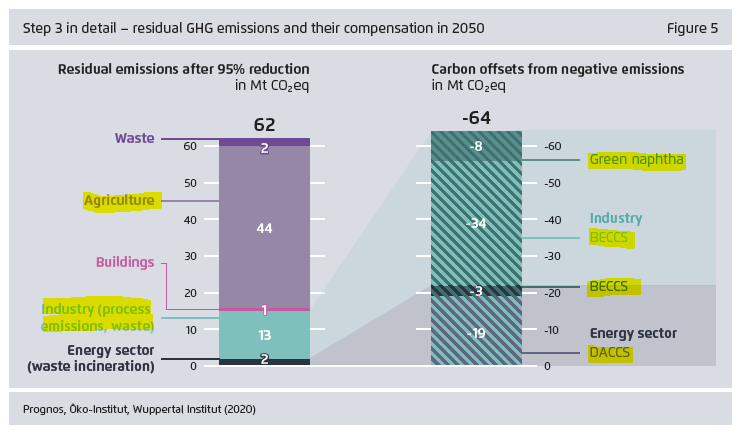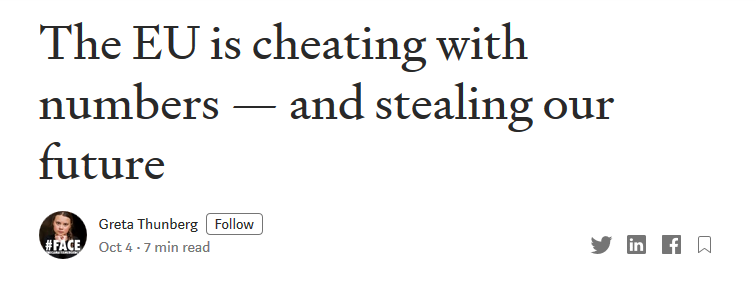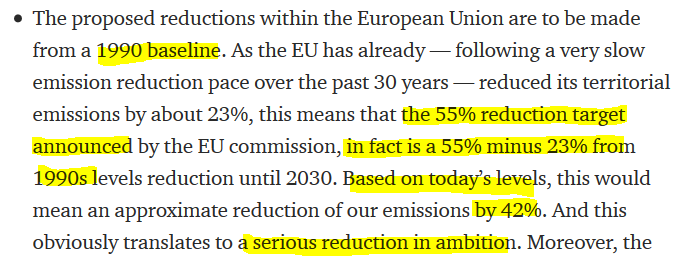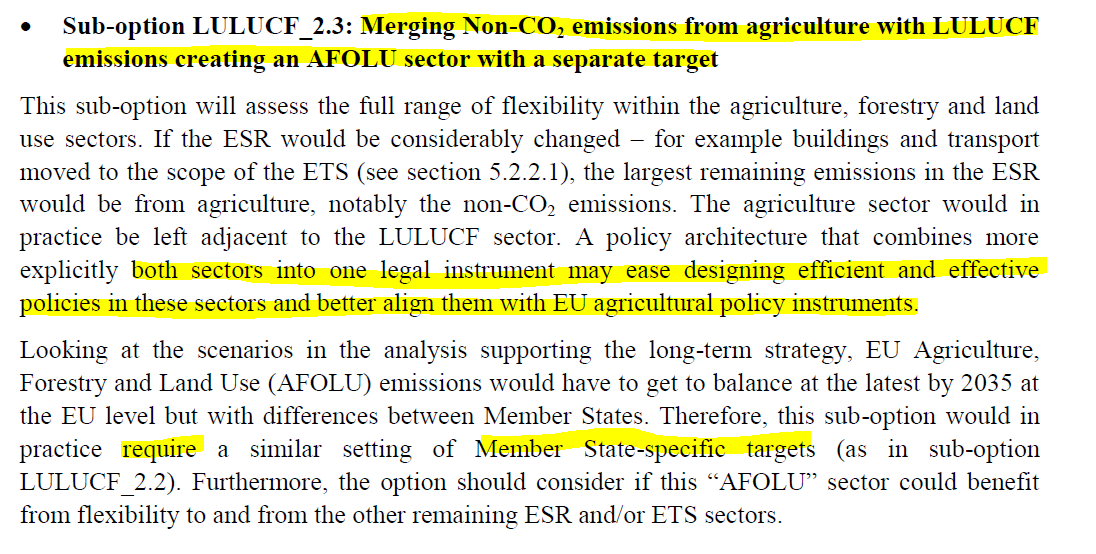
Major step forward for German #climate debate today, with study from @Prognos_AG, @oekoinstitut & @Wupperinst, The first report on net zero GHGs based on sound modelling
A quick look at Carbon Dioxide Removal
agora-energiewende.de/en/press/news-…
@AgoraEW, @agoraverkehr @StiftungKlima
[1/n]
A quick look at Carbon Dioxide Removal
agora-energiewende.de/en/press/news-…
@AgoraEW, @agoraverkehr @StiftungKlima
[1/n]

Study assumes 95% conventional mitigation, making it one of the more ambitious for industrialized countries (CCC for UK & COM for EU: ~90%, see swp-berlin.org/10.18449/2020R…)
Residual emissions mainly from agriculture & industry, aviation already at zero
agora-energiewende.de/en/press/news-…
[2/n]
Residual emissions mainly from agriculture & industry, aviation already at zero
agora-energiewende.de/en/press/news-…
[2/n]

Carbon Dioxide Removal is slightly higher than residual emissions (64 vs, 62 Mt), mainly consisting of Bioenergy with CCS (mostly in industry, not in power sector) and Direct Air Capture with CO2 storage
Scenario does not rely on LULUCF sink
agora-energiewende.de/en/press/news-…
[3/n]
Scenario does not rely on LULUCF sink
agora-energiewende.de/en/press/news-…
[3/n]

Report takes the criticism around accounting and permancence of land-based 'natural' CO2 sinks rather seriously. It calls for greater attention and reversing the current trend of decreasing sink capacity, continues to account for LULUCF seperately
agora-energiewende.de/en/press/news-…
[4/n]
agora-energiewende.de/en/press/news-…
[4/n]

Not surprisingly, study also indicates need for conventional CCS (beyond generating negative emissions), not for power sector but industrial process emissions and waste sector, starting as early as 2030 (for cement)
Total CCS to reach 73 Mt by 2050
agora-energiewende.de/en/press/news-…
[5/n]
Total CCS to reach 73 Mt by 2050
agora-energiewende.de/en/press/news-…
[5/n]

Since people at @AgoraEW, @agoraverkehr & @StiftungKlima have been an integral part of German #climate debate for some time, they of course know that implementing this 'final step' will be quite controversial
(hm, the ones before probably as well)
agora-energiewende.de/en/press/news-…
[6/n]
(hm, the ones before probably as well)
agora-energiewende.de/en/press/news-…
[6/n]

Finally, some numbers.
Of course, many of the assumptions can be contested. We need an informed debate
But it's remarkable that even the 30p summary (full #klimaneutral2050 report only in Nov) is much better than any net-zero study on Germany so far
agora-energiewende.de/en/press/news-…
[end]
Of course, many of the assumptions can be contested. We need an informed debate
But it's remarkable that even the 30p summary (full #klimaneutral2050 report only in Nov) is much better than any net-zero study on Germany so far
agora-energiewende.de/en/press/news-…
[end]

• • •
Missing some Tweet in this thread? You can try to
force a refresh
















